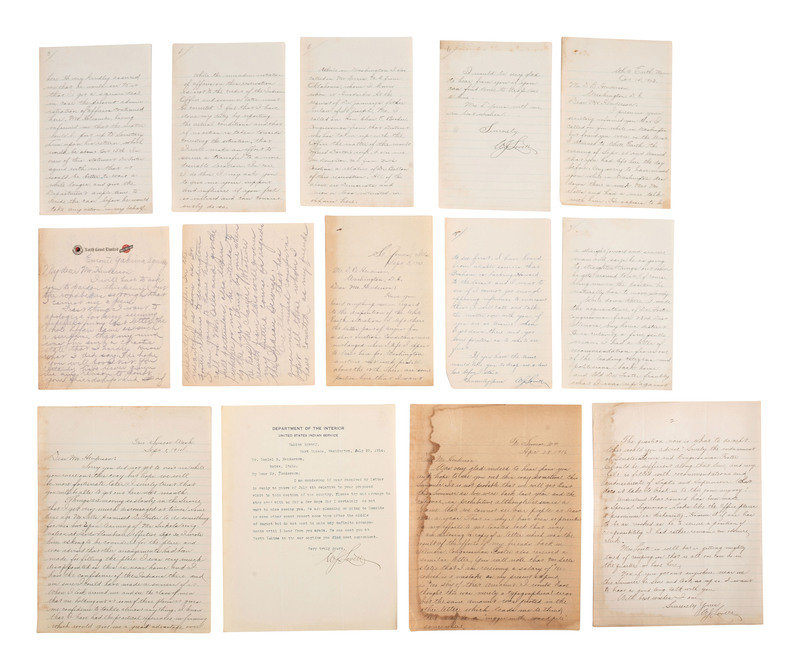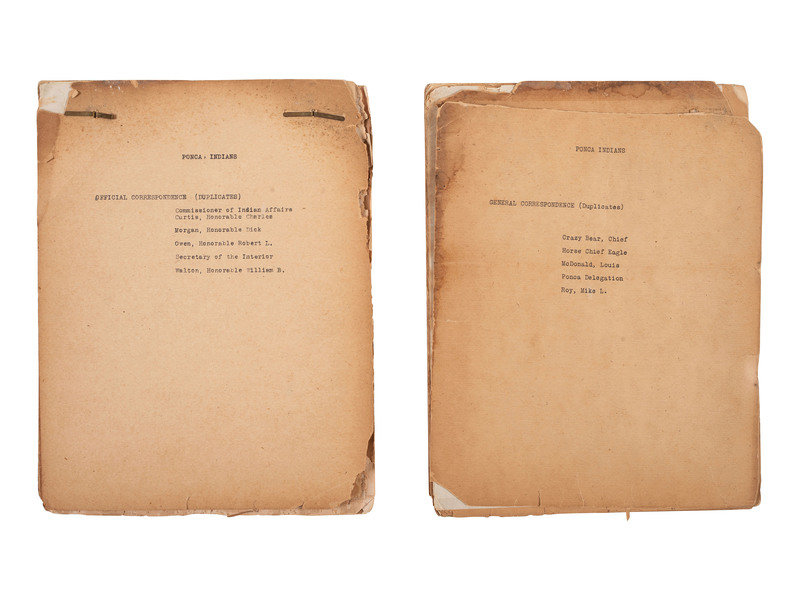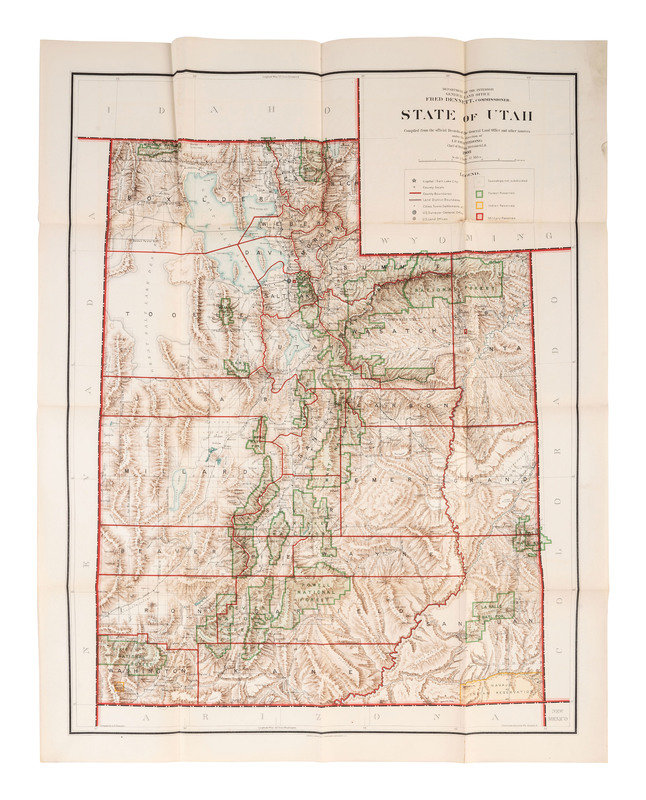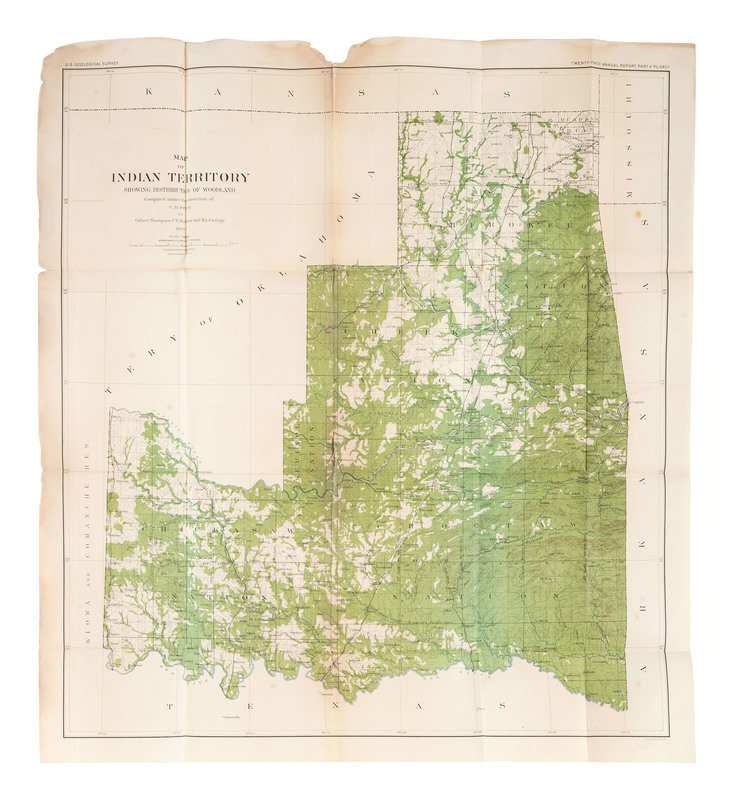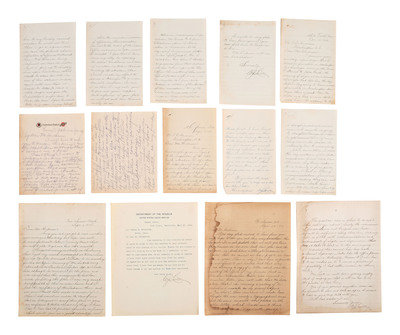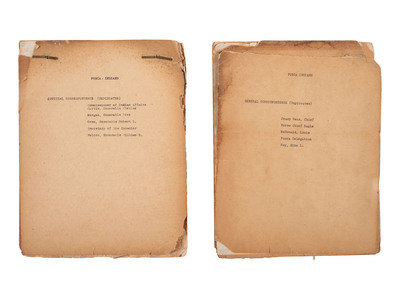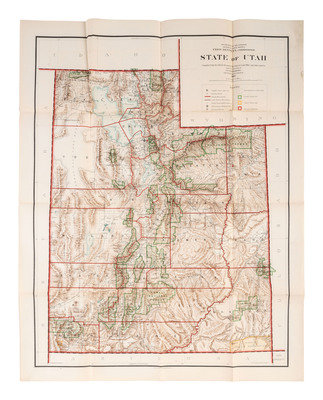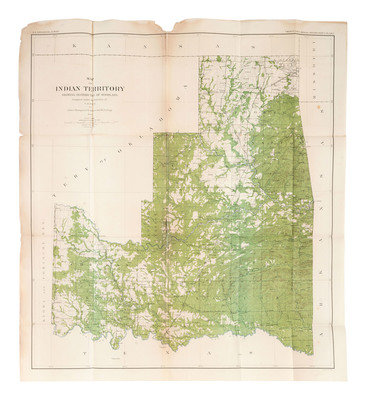[NATIVE AMERICAN]. Correspondence involving affairs at White Earth Agency, ca early 20th century.
Sale 1252 - American Historical Ephemera & Photography Online
Lots Open
Nov 30, 2023
Lots Close
Dec 11, 2023
Timed Online / Cincinnati
Own a similar item?
Estimate
$600 -
800
Price Realized
$693
Sold prices are inclusive of Buyer’s Premium
Lot Description
[NATIVE AMERICAN]. Correspondence involving affairs at White Earth Agency, ca early 20th century.
A group of 17 documents primarily related to Mr. W.J. Lovett, Assistant Superintendent, White Earth Agency, Department of the Interior, United States Indian Service. Collection includes 15 letters written between 1913-1916 by Lovell to Washington, D.C. attorney Daniel B. Henderson, each pertaining to Lovell's position as Assistant Superintendent at White Earth Reservation and later his placement at Yakima Agency in Washington State. Letters describe behind-the-scenes personal and political machinations affecting the management of the reservations as well as affecting appointments to positions within the Indian Service. Lovell's letters demonstrate a deep dissatisfaction with the Indian Service, and a recognition that incompetent appointees often were not working for the best interests of the Native Americans on the reservations. Two additional letters accompany Lovett's papers, each written by J.J. Teeple, a mixed-race clerk at White Earth Indian Agency. Like Lovett, Teeple expresses his concerns to Henderson over management at the reservation and specifically about Superintendent Major John R. Howard. Howard was Bureau of Indians Affairs Superintendent of the White Earth Agency from 1908 to 1916, a period of time during which there was significant economic, cultural, and religious oppression of the Native American peoples, as well as land theft and other forms of theft perpetrated by government officials.
Sample content includes:
15 February 1915, Fort Simcoe, Washington, Lovett to Henderson: "We recently had visits from two Special Agents and one Supervisor and various rumors are afloat. I very frankly told one of them, who was quizzing me about certain matters, that if I did know of any delinquencies I would not tell him for the simple reason that the Indian Office would not protect its subordinate employees; that if they wanted to get a man they could always find some little technicality to get him on and if a man had the right kind of a pull he could do almost anything and get away with it. Since my W.E. [White Earth] experience I have very little confidence in the good intentions of the Office. Up to that time I labored under the delusion that as long as one did their duty and that which was right that he would be at least protected."
16 March 1916, White Earth Indian Agency, Teeple to Henderson: "It seems that my appointment to the position of clerk here [White Earth] was not entirely agreeable to Mr. Howard, as he seems to entertain a very strong prejudice against a mixed-blood, and the fact that I am a mixed-blood seems to be a sufficient cause for branding me a conspirator...."
[With:] Two sets of bound typed documents related to the Ponca Indians, "General Correspondence (Duplicates)" of Chief Crazy Bear, Horse Chief Eagle, Louis McDonald, Ponca Delegation, and Mike L. Roy, and "Official Correspondence (Duplicates)" of Honorable Charles Curtis, Commissioner of Indian Affairs, Honorable Dick Morgan, Honorable Robert L. Owen, Secretary of the Interior, Honorable William B. Walton.
[Also with:] A group of 22 maps from regions across the United States, many produced by US Geological Survey, some pertaining to Indian Territory, others relating to topics such as National Forests, Land Classification and Density of Standing Timber, and US Distribution of Iron Ore.
Daniel Brosius Henderson, Sr. (1862-1940) spent the bulk of his career litigating on behalf of America's Native peoples. He was born in Hancock, Maryland, attended the University of Virginia, and by the late 1800s had established a law practice in Kansas City, Missouri. After more than a decade in Missouri, Henderson and his growing family returned to Virginia in 1901. It was in Washington, DC, where the young lawyer would distinguish himself as a prominent attorney with a specialization in Indian claims litigation. Over the course of a decades-long career, he represented the claims of multiple tribes in disputes against the US government, winning a major case for the Klamath tribe in 1937.
This lot is located in Cincinnati.
Condition Report
Auction Specialist
